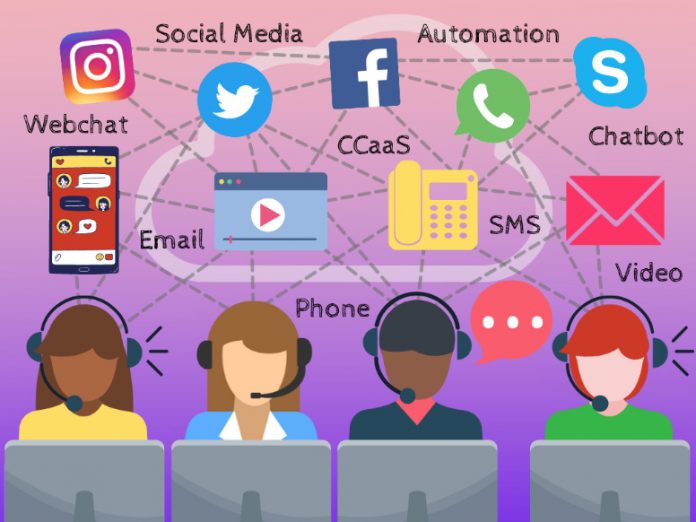By Grace Lau
It’s no secret that the global ecommerce industry has been expanding. Ecommerce retail sales grew from 1.34 billion sales in 2014 to 5.54 billion sales in 2022. But as sales have increased, so too has the demand for excellent customer service. Today’s customers expect 24/7, personalized support on multiple communication channels. The solution? A top-notch ecommerce contact center.
Contact centers allow businesses to track, integrate, and manage their interactions with customers. They support their sales and marketing teams and boost loyalty to their brand. And they’re a great way to give customers the personal touch they crave. But what exactly is an ecommerce contact center? Let’s find out.
What is an ecommerce contact center?
Ecommerce contact centers handle all incoming and outgoing calls. They also manage customer support channels like social media, email, and web or video chat. Their purpose is to increase sales, resolve problems or complaints, and answer questions. Done well, they improve the customer experience, which helps attract and retain customers.
Traditionally, contact centers required a physical office or private cloud network to operate. Now, though, many businesses have turned to the public cloud for Contact Center as a Service (CCaaS). CCaaS allows companies to run a virtual contact center from anywhere. This, and other ecommerce software, enhances customer service and increases efficiency and productivity.
Contact center roles
An ecommerce contact center agent has many roles, such as:
- Replying to questions
- Answering or making calls
- Responding to emails or social media
- Responding to web support tickets
- Interacting in live chats
- Technical support
- Handling complaints
- Any other customer support duties
These frontline interactions with customers make contact center agents a valuable source of information for marketing and sales teams.
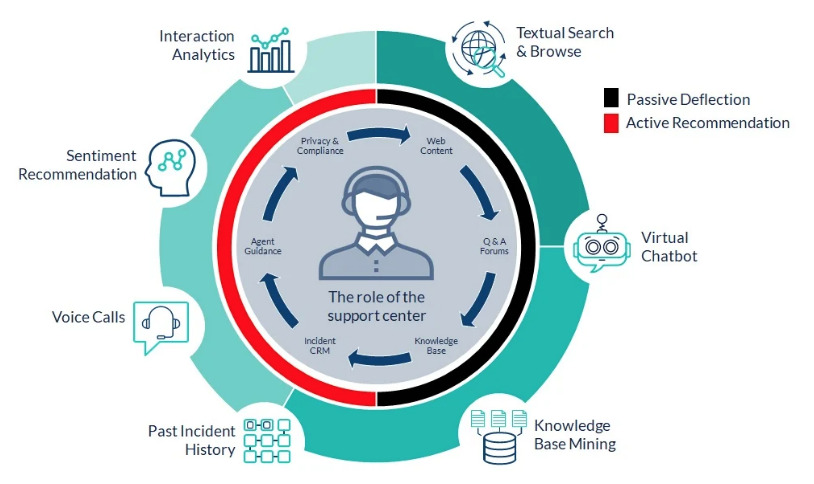
Contact centers vs. call centers
Many people use “contact center” and “call center”’ interchangeably. After all, both contact centers and call centers handle customer service. But while call centers only manage calls, contact centers offer multi-channel customer support. This makes contact centers especially valuable since 76% of customers want to engage with brands on their preferred channel – whether by phone, social media, email, or webchat.
What happens if you have a call center but want to cater to other channels? You can use software like cloud-based phone systems to turn your call center into a contact center. You can integrate such software with your other business systems to give customers a unified experience.
Ecommerce contact center benefits
Now, let’s look at the benefits an ecommerce contact center can offer your business. Contact centers have several benefits. For instance, they can:
1. Improve customer service
81% of customers say it’s important for a company to solve their inquiry or problem quickly. A slow response means a poor customer experience, which makes customers hesitant to do business with a company again.
How can an ecommerce contact center help? Many contact centers operate 24/7, especially virtual ones, so there’s always someone for customers to speak to. Plus, automated software, like chatbots and auto-attendants, reduce wait times and improve customer satisfaction.
For instance, 70% of customers say it’s important for businesses to have a callback option, and “callback” is one of the options on an automated phone answering system for small business. Also, webchat features and chatbots give customers the instant response they want. This could be why businesses saw a 63% rise in live webchat volume and a 59% rise in chatbot volume in 2021 alone.
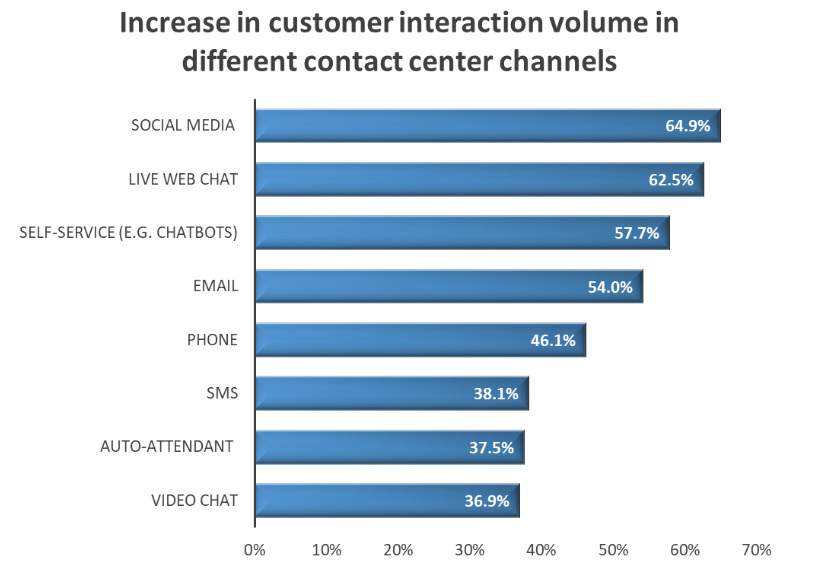
2. Increase customer loyalty
Many businesses recognize how important it is to have a high-converting product page and a solid marketing strategy. But they often overlook the importance of customer service. This is a problem since good customer service is vital if you want to build customer loyalty to your brand. After all, 63% of customers say a single poor customer service experience negatively impacts their brand loyalty.
A well-run contact center increases customer loyalty by giving customers excellent service. If complaints are handled swiftly and questions are promptly answered, customers will come to trust your company. If customers trust you, they’re more likely to buy from you again in the future. You’ll also have more opportunities to upsell, cross-sell, and get referrals.
3. Provide opportunities for feedback
There are many tools to improve products and services, from AI to CI (if you’re thinking, “What does CI stand for?”, the answer is “continuous integration”). But while they can save businesses time and money, they don’t guarantee a customer will stay long-term. To find out what makes a customer tick, businesses need feedback. Customer feedback gives important insights such as:
- What customers like about a business and what they don’t like
- How a business can improve the customer experience
- What would encourage customers to re-engage or stay with a business
An ecommerce contact center is a perfect place to gather such feedback. Contact center agents can ask customers to rate their experience after a phone call or email them a questionnaire. You can also use marketing automation for SaaS to send out customer satisfaction surveys so your agents can focus on other tasks.
4. Boost sales
For a business to be successful, it needs to convince customers to buy its products. In other words, it needs first-class marketing. A contact center is a great way for businesses to market their products and gain a competitive advantage over their rivals.
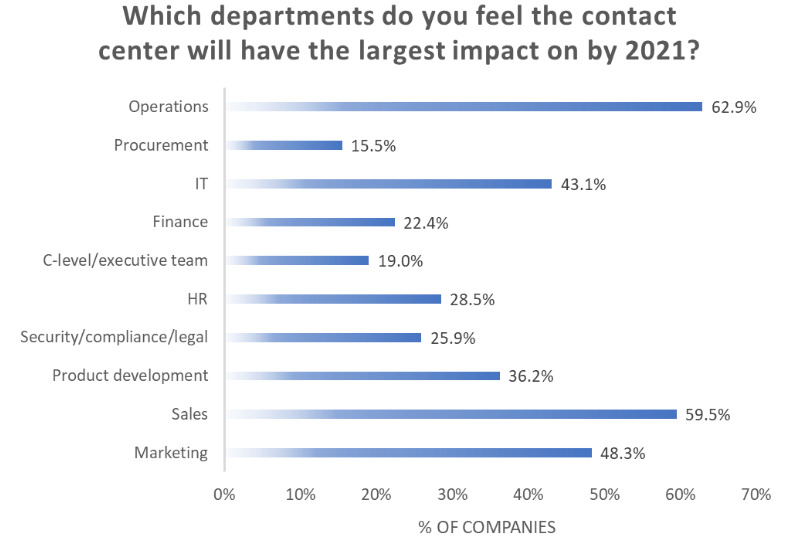
How? Through a contact center, you can:
- Define your target audience
- Choose your ideal marketing strategy
- Respond to incoming sales calls and queries
- Understand customer needs and expectations
- Reduce marketing costs
- Gauge the demand for different products and services
- Close more deals
- Follow up on sales
- Guide customers along their marketing journey
Contact centers let you interact with customers 24/7, so you never miss an opportunity. This means they’re great support for your marketing and sales teams.
5. Provide personalized service
42% of companies want to spend more money on delivering personalized experiences. Why? Customers expect personalized service, so providing it increases customer satisfaction and loyalty. How can an ecommerce contact center help? First of all, there’s the data your contact center collects about your customers, like their preferences and behavior. Your contact center agents can use this to deliver personalized service.
Also, you can integrate your CRM software with your contact center. This means all your customer data is in one place that every department can access. Contact center agents will know your customers’ preferred channels as well as any accessibility concerns. They can then ensure accessibility for video calls, webchat, and other channels.
CRM integration also means you can personalize your automated contact center systems. For instance, your auto-attendant can use the data in your CRM to identify callers and route them to the appropriate agent. And it can play different messages depending on whether the caller is a new or existing customer or a VIP.
6. Improve efficiency and productivity
An efficient and productive contact center equals an efficient and productive business. You’ll have happier customers, more sales, and higher profits. Ecommerce software can improve the efficiency and productivity of your agents, so you can enjoy the benefits of a well-functioning contact center.
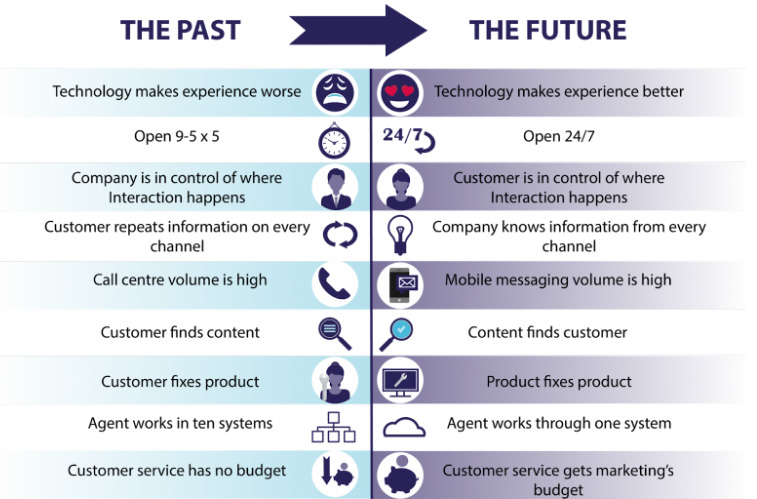
Ecommerce software includes:
- Help desk software, so you can create help tickets and streamline workflows.
- A multi line cordless phone system lets you manage multiple calls from one device.
- Auto-attendant, call queuing, and call transfer so callers reach the right agent or department.
- Automated email and social media workflows enable contact center agents to focus on other tasks.
CCaaS platforms have all these tools and more in one place, so your agents won’t waste time switching between screens. You can also track important metrics like uptime, call abandonment rate, average hold time, and talk time. You can then use these insights to improve efficiency and performance.
7. Work from anywhere
An ecommerce contact center can also support remote working, which is what many employees want. For instance, only 20% of companies think the majority of their contact center agents will spend their workday in the office. This is made possible by contact center software. As long as they have an internet connection, your agents can access your contact center platform from anywhere.
Remote working can save you money, especially if your contact center is cloud-based. You won’t have to pay for office space or equipment, and your customers will still receive great service. Also, giving employees the option of where they work can make them more productive.
In a nutshell
An ecommerce contact center can boost customer satisfaction and loyalty. It can also increase sales and provide valuable customer insights to inform your marketing department. In other words, it’s a must-have for any ecommerce business.
Ecommerce software, like CCaaS, improves the efficiency and productivity of your contact center. Plus, it’s cost-effective and supports remote working. This means any business, large or small, can reap the benefits of an ecommerce contact center and gain a competitive edge.
About the Author

Grace Lau is the Director of Growth Content at Dialpad, an AI-powered cloud communication platform for better and easier team collaboration. She has over 10 years of experience in content writing and strategy. Currently, she is responsible for leading branded and editorial content strategies, partnering with SEO and Ops teams to build and nurture content. She has written for sites like GoCo and Klipfolio.


